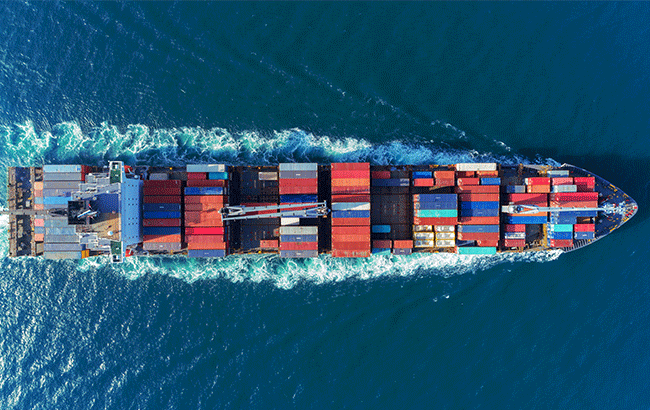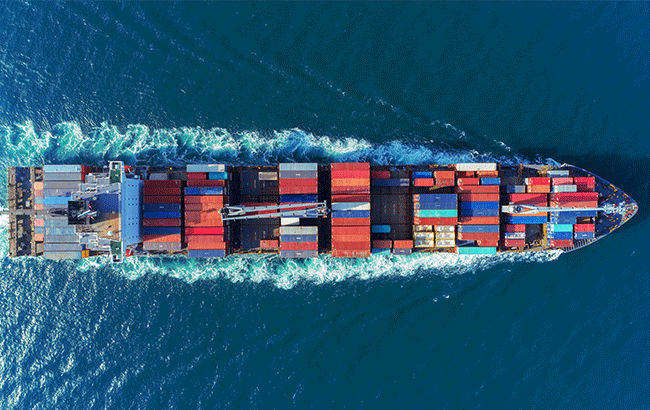Products You May Like
The mixture of Brexit, the Covid-19 pandemic and different localised points means the spirits business worldwide is enduring main difficulties in terms of provide chains, as Alice Brooker stories.

*This characteristic was initially printed within the November 2021 concern of The Spirits Enterprise journal.
As doorways of on‐commerce venues hung up ‘closed for service’ indicators over the previous 18 months, stress shifted to the off‐commerce, which has been met with a storm of difficulties. With the hardships of Brexit and tariffs being imposed on spirits producers, the pandemic has additionally performed an element in affecting the availability chain.
At the moment reeling from a ‘Covid hangover’, the spirits business is heading into the busy festive interval whereas grappling with shortages. Within the US, ‘out‐of‐inventory’ labels have crammed the cabinets the place common bottlings as soon as stood, and the state of Pennsylvania has enforced a gross sales ration on Hennessy Cognac, Jack Daniel’s whiskey and Patrón Tequila.
There have additionally been worldwide delays in acquiring dry items, reminiscent of packaging supplies and delivery containers.
In the meantime, corporations responding to the obstacles introduced by Covid‐19 has led to, in some circumstances, overstocking and a ensuing lack of warehouse area.
Miles Beale, chief govt of the UK’s Wine and Spirit Commerce Affiliation (WSTA), said: “Each little bit of the availability chain is below stress. There are further prices and pressures in getting items from A to B.
“From liquids, to bottles to packaging supplies and all of the individuals concerned in transferring them, there’s stress that I haven’t seen throughout my time at WSTA.”
The Scotch Whisky Affiliation (SWA) echoed Beale’s phrases. A spokesperson mentioned the pressures, for some within the business, had been “the worst they’ve ever identified”.
Materials shortages
Jack Daniel’s proprietor Brown‐Forman revealed its provide chain issues throughout a convention name for its fourth quarter of fiscal 2021.
The US company’s govt vice‐president and chief monetary officer, Jane Morreau, mentioned through the name that “there’s a number of transportation and logistics challenges which might be ramping again up because the economic system improves”, notably “delays in rail service, container availability and trucking capability within the US”.
As regards to materials shortages, disruptions within the metal business have induced an impediment in making hoops for barrels. Extra urgent, nevertheless, are the disruptions in glass provide. “That’s definitely one thing that’s actually vital to us and one thing that we’re working intently on with our provider now to get that resolved,” Morreau mentioned through the convention name.
David Ozgo, chief economist for commerce physique the Distilled Spirits Council of the US (Discus), highlights the scarcity of HGV drivers throughout the availability chain. Whereas this can’t be instantly blamed on Covid‐19, however on the business having an exceptionally excessive price of driver turnover, issues have been worsened by the virus, in addition to Brexit.
The driving force scarcity means there’s “problem getting merchandise to a warehouse”, he mentioned.
“If you wish to fill up, there’s a scarcity of warehouse area as a result of everyone is making an attempt to try this. Worldwide shipments that ought to take 21 days at the moment are taking 40. Domestically, shipments that ought to take per week are taking 10‐14 days.”
Are some delays self‐inflicted? Chris Leggat, CEO of Scotch whisky bottler Douglas Laing & Co, mentioned delays are longer as a result of persons are overstocking and “producing greater than they usually do”.
However how a lot blame might be positioned on the pandemic? Spirits business professionals have repeatedly referred to weathering a ‘good storm’ within the provide chain: consultants point out Brexit, rising vitality costs, and the imposition of tariffs in the US, in addition to points within the worldwide freight transport sector, and experience troubles with reference to fixing labour shortages.
Strain on the availability chain to service the off‐commerce definitely might be attributed to the pandemic, nevertheless.
Oliver Chilton, head blender at Elixir Distillers, mentioned “demand for good‐high quality whisky and rum has by no means been greater”, and {that a} “big enhance in demand for premium spirits has led to backlogs at bottling halls throughout Scotland”.
Leggat added that extra persons are consuming whisky at house through the pandemic, and Leanne Cunningham, chief monetary officer at Brown‐Forman, mentioned demand is even greater as a result of “shoppers are treating themselves to the on a regular basis luxurious of the spirits class”.
In some circumstances, manufacturers have managed to adapt to the modifications, responding properly to provide chain points.

On-line tastings
Douglas Laing moved practically 40% of its whole stock from warehouses within the Center East and Africa to Europe, to service prospects “in a well timed method”, added Leggat. The Scotch whisky bottler wished to make sure its “personal provide chain was prepared”. As client buying went on-line, it ensured its direct‐to‐consumer e‐commerce enterprise was dependable.
Additionally, when international occasions had been cancelled, Leggat “made positive its gross sales and advertising and marketing group had been innovating, and doing on-line tastings”.
Different manufacturers have additionally regarded to adapt. Beale famous the WSTA has seen sure retailers within the provide chain “transferring smaller masses” of products as a consequence of a scarcity of HGV drivers within the UK, in addition to retraining employees “to drive the smaller vans, not HGVs”.
But the dearth of help supplied through the pandemic is exacerbating provide chain issues.
“We have to see extra help manifested at house,” SWA’s spokersperson mentioned. “Supportive tax therapy for Scotch and never rising the spirits tax burden might be vital if the business is to bounce again from the results of the previous two years.”
In the meantime, Beale mentioned the furlough scheme alleviated stress on the hospitality sector, but this help was “by no means made obtainable to anybody within the provide chain”, and this lack of help is “most tough for our smaller companies”.
Certainly, it’s essential to match greater firms with smaller unbiased corporations when trying on the provide chain struggles.
Beale said that “every thing bites tougher for small‐ and medium‐sized enterprises (SME) than it does for bigger organisations”, as SMEs have much less capital. They’re discovering the problems “notably tough”, particularly in competing towards main firms reminiscent of Brown‐Forman, which, in keeping with Cunningham, goals to get suppliers to “prioritise” the corporate.
Ozgo defined that as a result of bigger distillers have wider portfolios, they will merely construct a advertising and marketing marketing campaign round extra home merchandise, relatively than worldwide ones.
Moreover, a smaller firm will see its provide chain dry up quicker: “In the event you’re a small craft man, you’re at all times searching for one of the best value, which can imply buying from extra capability,” Ozgo added. “When there’s no extra capability, your provide chain has successfully dried up.”
Nonetheless, Chilton, of the small household‐owned Elixir Distillers, thought-about Covid‐19 to be a “implausible catalyst for creation”.
“It’s an opportunity for us to compete with bigger corporations,” he mentioned.
“We’re capable of be versatile and alter our technique. It may be irritating when greater corporations purchase up massive portions of dry items, however for us it’s simply a chance to seek out new methods of constructing nice merchandise.”
Nonetheless, the SWA emphasised the “vital affect” smaller corporations are experiencing. “Smaller corporations are starting to really feel the squeeze on their companies, which in flip will affect funding, development and job alternatives,” the spokesperson mentioned.
Constructive outcomes
Surprisingly, provide chain delays, both induced or exacerbated by the pandemic, have yielded constructive leads to some circumstances. Leggat famous how provide chain points have accelerated the business’s inexperienced consciousness.
“Companies are considering packaging they actually need,” he mentioned. “Perhaps this is a chance to make use of much less packaging. We’re definitely seeing the race to internet zero being accelerated by provide chain.
“Likewise, distillers are trying regionally at sustainable efforts via vitality and persons are shopping for native, extra premium bottles. The pandemic could have a terrific affect on the sustainability message.”
The kinks within the provide chain are indisputably hitting all sizes of corporations within the spirits business, and because the festive interval nears there’s a basic apprehensiveness concerning the elevated stress on producers. Present obstacles usually are not all Covid‐associated, however the disaster has definitely introduced the dearth of presidency help worldwide to gentle. With echoes of the troubles falling tougher on the smaller, unbiased corporations, the long run is trying hazy for some.
All the identical, with enterprise fashions adapting to a world of e‐commerce, and sustainability being given extra consideration, it may very well be argued that the pandemic has created a brand new enterprise mannequin.
Its permanence is questionable, nevertheless, and is maybe depending on companies receiving the assistance they want.
